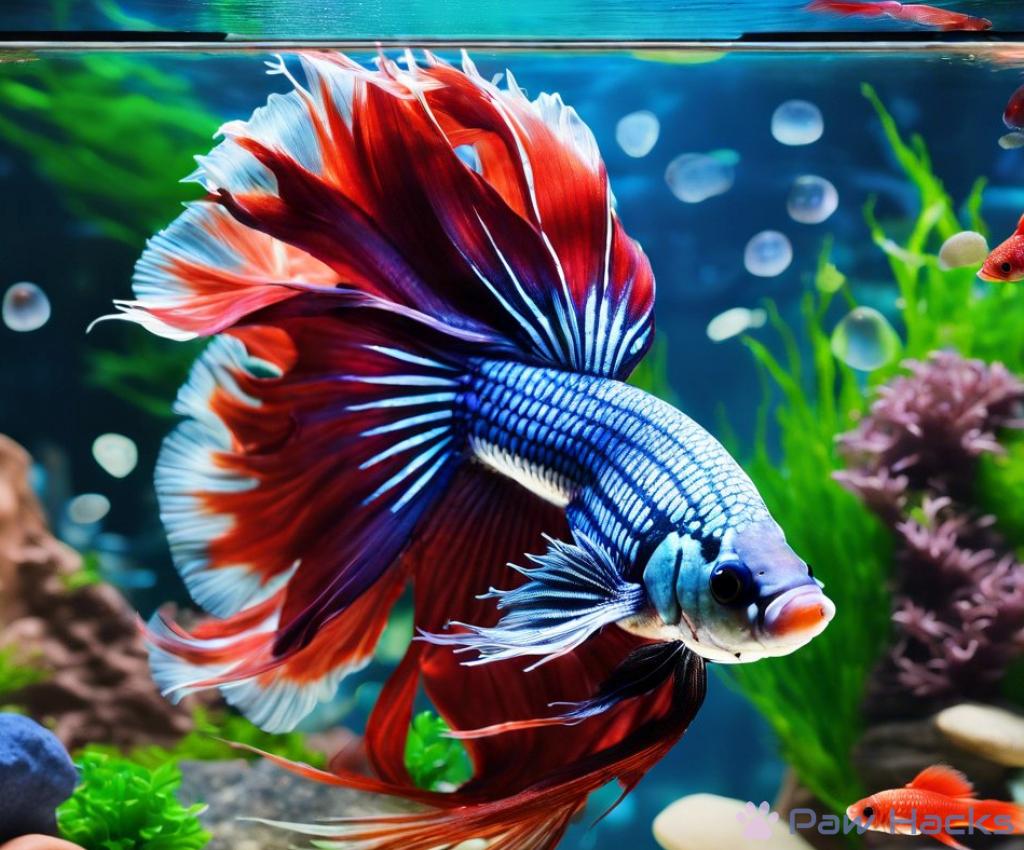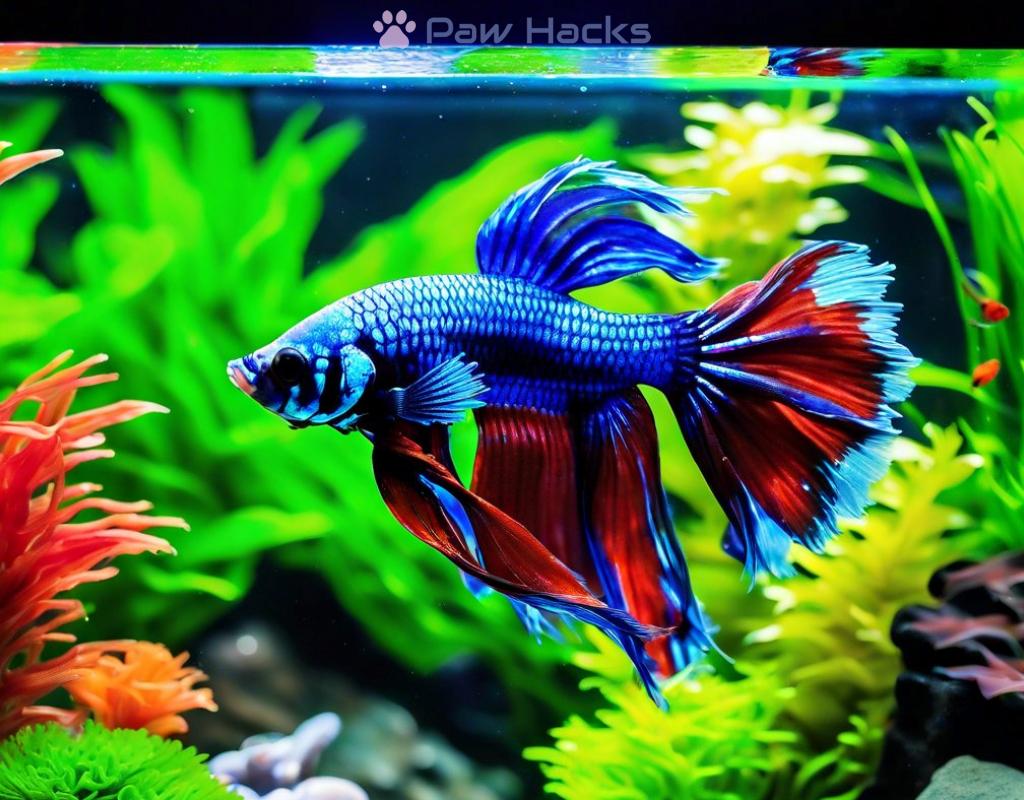Ideal Diet for Siamese Fighting Fish
The Ultimate Guide to Nutritional Needs of Siamese Fighting Fish

Understanding the Dietary Requirements
Siamese fighting fish, also known as Betta fish, are not just beautiful creatures; they have specific dietary needs that play a crucial role in their health and well-being. Providing the right nutrition can enhance their vibrant colors, boost their immune system, and even extend their lifespan. In this section, we will delve into what makes up a balanced diet for these remarkable fish.
Essential Nutrients for Optimal Health
Just like any living organism, Siamese fighting fish require a variety of nutrients to thrive. These include proteins, fats, carbohydrates, vitamins, and minerals. Each of these components plays a unique role in maintaining their health.
- Proteins: Vital for growth and repair, proteins should make up a substantial part of their diet. Look for high-quality sources like fish meal or shrimp meal.
- Fats: Healthy fats are important for energy and the overall health of your fish. Omega-3 fatty acids are particularly beneficial.
- Carbohydrates: Although not as crucial as proteins and fats, carbohydrates can provide energy and help maintain digestive health.
- Vitamins: Essential for various bodily functions, vitamins like A, C, and E support immune function and skin health.
- Minerals: Minerals like calcium and phosphorus are important for bone health and metabolic processes.
Types of Food to Consider
When choosing food for your Siamese fighting fish, it’s essential to consider the different types available. A varied diet will ensure that your fish receives all the necessary nutrients. Here’s a comparison of popular food options:
| Type of Food | Benefits | Considerations |
|---|---|---|
| Flakes | Easy to feed and store | May contain fillers; choose high-quality brands |
| Pellets | Dense in nutrients, less waste | Some fish may take time to adjust |
| Frozen Food | High protein content, mimics natural diet | Must be properly thawed before feeding |
| Live Food | Highly engaging and nutritious | Risk of diseases; ensure sourcing from reputable suppliers |
Top 5 Best Foods for Vibrant and Healthy Betta Fish
1. High-Quality Betta Pellets
When it comes to feeding your Siamese fighting fish, high-quality betta pellets are a top contender. These pellets are specifically formulated to meet the dietary needs of Betta fish, providing a balanced mix of proteins, fats, and essential vitamins. They are compact and easy to digest, reducing the risk of waste accumulation in your aquarium. Look for brands that list fish meal as a primary ingredient to ensure your Betta receives the best nutrition available.
2. Freeze-Dried Bloodworms
If you’re searching for a treat that will truly excite your fish, consider freeze-dried bloodworms. These tiny morsels are packed with protein and mimic a Betta’s natural diet in the wild. Incorporating freeze-dried bloodworms into your fish’s diet not only enhances their color but also promotes healthy growth. Just be cautious not to overfeed, as these can be quite rich and might lead to digestive issues if given in excess.
3. Live Brine Shrimp
For a truly engaging feeding experience, live brine shrimp can be an excellent choice. These live foods are not only nutritious but also stimulate your Betta’s natural hunting instincts. The movement of live brine shrimp in the water can create an interactive feeding environment that keeps your fish active and healthy. However, ensure you source them from reputable suppliers to avoid introducing any diseases into your aquarium.
4. Frozen Daphnia
Another highly nutritious option is frozen daphnia, commonly known as water fleas. This food is rich in fiber and is great for aiding digestion in Siamese fighting fish. Frozen daphnia can be easily thawed and offered to your Betta as a staple or a treat. Regular inclusion of daphnia in their diet can help maintain a healthy gut, ensuring your fish stay happy and vibrant.
5. Spirulina Flakes
Last but not least, spirulina flakes are an excellent supplement to any Betta’s diet. Spirulina is a type of blue-green algae that is loaded with nutrients, including proteins and essential fatty acids. This food not only supports overall health but also enhances color, making your Betta fish even more stunning. Incorporating spirulina flakes a few times a week can provide a well-rounded dietary approach.
Understanding Feeding Frequency: How Often Should You Feed Your Betta?
Feeding your Siamese fighting fish the right amount at the right intervals is crucial for their health and vitality. While choosing high-quality food is important, understanding how often to feed your Betta can make a significant difference in their overall well-being. A well-planned feeding schedule can prevent overfeeding, reduce waste in the aquarium, and promote a healthy lifestyle for your fish.
Daily Feeding Routine
Most aquarists recommend feeding Betta fish once or twice a day. This frequency mimics their natural feeding habits, where they consume smaller amounts throughout the day. However, it’s essential to monitor your fish’s behavior and adjust accordingly. Here are a few key points to keep in mind:
- Portion Control: Offer only as much food as your Betta can consume in about 2-3 minutes. Overfeeding can lead to obesity and water quality issues.
- Observation: Watch your fish during feeding time. If there are leftover pellets or food, reduce the quantity in subsequent feedings.
- Variety: Incorporate different types of food, such as pellets, freeze-dried, and frozen options, to keep your Betta engaged and ensure a balanced diet.
Adjusting for Age and Activity Level
The age and activity level of your Betta can also impact how often they should be fed. Young, growing fish may require more frequent feedings, while adult Bettas typically thrive on a consistent schedule. Additionally, if your Betta is particularly active and playful, they may benefit from an extra feeding session. It’s vital to tailor the feeding schedule to your fish’s needs, ensuring they receive adequate nutrition without overindulging.
Special Considerations for Breeding Bettas
If you’re breeding Siamese fighting fish, their dietary needs will change during this period. Female Bettas may require more frequent feeding to support egg production, while males need to maintain their strength for courtship displays. In such cases, consider increasing the feeding frequency to three times a day, offering smaller portions of highly nutritious food to support their reproductive health. Remember, careful observation is key to determining the best feeding strategy for your breeding Bettas.
Common Feeding Mistakes to Avoid for Your Siamese Fighting Fish
Understanding the Pitfalls of Betta Feeding
Feeding your Siamese fighting fish may seem straightforward, but it’s easy to make mistakes that can lead to serious health issues. Recognizing these common pitfalls is essential for maintaining the well-being of your aquatic companion. In this section, we will explore typical feeding errors that can compromise your Betta’s health and offer solutions to enhance their dietary experience.
Overfeeding: A Silent Threat
One of the biggest mistakes made by fish owners is overfeeding. Bettas have small stomachs, and providing too much food can lead to obesity, swim bladder disorders, and poor water quality in your aquarium. Always aim to serve only as much food as your Betta can consume in about 2-3 minutes. If you notice uneaten food lingering in the tank, it’s a sign to cut back. Keeping a close eye on their eating habits is crucial; if your Betta appears lethargic or bloated, consider adjusting their portion size.
Neglecting Dietary Variety
Another common mistake is feeding your Betta a monotonous diet. Relying solely on one type of food, such as pellets or flakes, may lead to nutritional deficiencies. A diverse diet is vital for your Betta’s overall health. Incorporate a mix of high-quality pellets, freeze-dried options, and occasional live foods to ensure your fish receives a well-rounded nutritional profile. This variety not only meets their dietary needs but also keeps them engaged and active. Remember, just like us, fish thrive on a balanced diet that includes different food types.
Enhancing Color and Health: The Role of Supplements in Betta Diet
The Importance of Nutritional Supplements
When it comes to maintaining the vibrancy and vitality of your Siamese fighting fish, the right supplements can make all the difference. While a balanced diet is essential, incorporating supplements can provide those extra nutrients that ensure your Betta remains healthy and displays stunning colors. These nutritional additions can support overall well-being and promote the natural beauty of your fish, making them a popular choice among aquarists.
Types of Effective Supplements
There are several types of supplements that can be beneficial for your Betta’s diet. Color-enhancing supplements, often derived from natural sources like spirulina and astaxanthin, play a significant role in boosting the vibrant hues of your fish. These supplements are infused with carotenoids which are known to enhance pigmentation in Betta fish, making their colors pop. Additionally, vitamin-rich supplements can provide essential nutrients that support immune function and overall health. For example, vitamin C is crucial for maintaining a robust immune system, while vitamin E helps in promoting healthy skin and fins.
Integrating Supplements into Their Diet
Integrating these supplements into your Betta’s diet should be done thoughtfully. A common practice is to mix powdered supplements with their regular food or to choose foods that are already enhanced with these nutrients. It’s important to remember that while supplements can provide significant benefits, they should not replace a varied diet. Instead, they should complement the primary food sources, ensuring a well-rounded nutritional intake. Always monitor your fish’s reaction to new supplements; if you notice any adverse effects, it is advisable to discontinue use.
Share this content:



